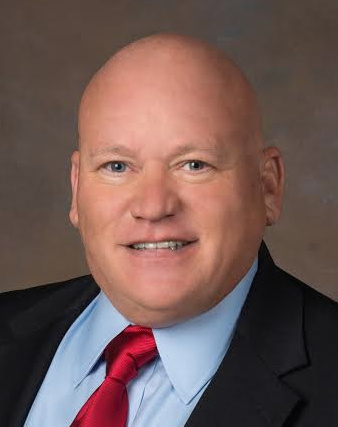News Clips
Is Blockchain Just Another Buzzword or Can It Transform Healthcare?
If you follow technology in healthcare, you have likely heard of blockchain. But even if you are aware of the platform, it may not have truly hit your radar as possibly having near term impact. In fact Gartner puts blockchain at the peak of inflated expectations – speculating it will be another 5 to 10 years before it reaches mainstream adoption. However, there are a number of stakeholders that are working to defy Gartner’s predictions by putting blockchain into commercial use within the year...
- Login to post comments
Population Health Management Becoming a Priority for Providers, but Many Struggle With Stop-Gap Solutions and Lack of Infrastructure, Says Latest Black Book Survey
 Black Book’s most recent report on the state of population health management (PHM) reveals that it is among the fastest-growing areas in the healthcare IT space and several effective end-to-end solutions emerging. Record PHM spending underscores its increasing importance with a reported $8B invested in digital health in sum in 2016, with the majority going to population health and patient experience tools. But even as PHM solutions are quickly becoming a priority for healthcare organizations, in Q1 2017, 81% of providers are tackling population health projects without a strategic technology purchase that meets all their needs...
Black Book’s most recent report on the state of population health management (PHM) reveals that it is among the fastest-growing areas in the healthcare IT space and several effective end-to-end solutions emerging. Record PHM spending underscores its increasing importance with a reported $8B invested in digital health in sum in 2016, with the majority going to population health and patient experience tools. But even as PHM solutions are quickly becoming a priority for healthcare organizations, in Q1 2017, 81% of providers are tackling population health projects without a strategic technology purchase that meets all their needs...
- Login to post comments
Public Health Tech: The Future of Health Tech You Never Heard Of
Digital Health has experienced a glorious boom in the last decade and is expected to reach $379.3 Billion by 2024 with 25% of the growth occurring between 2016 and 2024. Patient management can now be done on user-friendly platforms; physicians can remotely monitor their patients with mobile devices and telemedicine; and personal trackers and genetic testing are allowing patients easier access to their own health data. Clearly, we understand the kind of power technology has on improving the delivery of care and management of disease...
- Login to post comments
Hyperledger Project Reflects on Blockchain Politics
Like any community, the blockchain world is also a political arena. Powerful consortia have emerged in a race to production, licencing spats occur and there's even a risk that patent enforcements could freeze innovation. The Hyperledger Project, which is now a major player in the space, gives blockchain the Linux Foundation treatment: fostering a series of open multi-stakeholder technology projects. Brian Behlendorf, the executive director of the Hyperledger Project, is a primary developer of the Apache Web server and a founding member of the Apache Software Foundation...
- Login to post comments
Study Unveils New Way to Starve Tumors to Death
For decades, scientists have tried to halt cancer by blocking nutrients from reaching tumor cells, in essence starving tumor cells of the fuel needed to grow and proliferate. Such attempts often have disappointed because cancer cells are nimble, relying on numerous backup routes to continue growing. Now, scientists at Washington University School of Medicine in St. Louis have exploited a common weak point in cancer cell metabolism, forcing tumor cells to reveal the backup fuel supply routes they rely on when this weak point is compromised. Mapping these secondary routes, the researchers also identified drugs that block them. They now are planning a small clinical trial in cancer patients to evaluate this treatment strategy...
- Login to post comments
The Health Disparity of Information Access
Access to healthcare is underpinned in large part on a health consumer’s access to information about available health care services, their location, price, and if the patient is very fortunate to glean, quality. As people take on more responsibility for managing their health care utilization and financing in America, their access to information that is easy-to-find, clear, comprehensive and current is critical to personal and public health outcomes...
- Login to post comments
A Deadly Superbug Appears to Be Invading America's Hospitals
A dangerous type of superbug has more tricks up its sleeves than we may be giving it credit for, a recent study suggests. The researchers found that this class of bacteria, CREs — that's short for carbapenem-resistant Enterobacteriaceae — has more ways to evade antibiotics than have been currently identified, and that these bugs share their tricks readily across the families of bacteria that make up this grouping...
- Login to post comments
Why 2017 Will Belong to Open Source
A few years ago, open source was the less-glamourous and low-cost alternative in the enterprise world, and no one would have taken the trouble to predict what its future could look like. Fast-forward to 2016, many of us will be amazed by how open source has become the de facto standard for nearly everything inside an enterprise. Open source today is the primary engine for innovation and business transformation. Cost is probably the last reason for an organisation to go in for open source...
- Login to post comments
Can SMART on FHIR Solve mHealth’s Medication Management Challenges?
An agreement to promote interoperability between three of the largest and most competitive EHR platforms has set the stage for a breakthrough in mHealth medication management. Using the SMART on FHIR app platform, providers will be able to access a patient’s entire medication history no matter where that data is stored. While this opens the door to better care management and coordination, it also gives patients the mHealth tools to manage their own care and collaborate with their doctors...
- Login to post comments
For $149 a Month, the Doctor Will See You as Often as You Want
Forward’s rethinking of the doctor’s office includes lots of touch screens, white walls, and wood accents. Imagine if your doctor’s office was more like an Apple Store mashed up with a fancy gym: a modern white-and-wood aesthetic, replete with fancy gadgets and gleaming touch screens, for which you paid a monthly fee to visit as often as you wished. That’s the environment I stepped into last week upon entering the new medical clinic belonging to San Francisco health startup Forward, which opened to the public on Tuesday in the city’s Financial District...
- Login to post comments
The Rise of 'Technology-Enabled' Clinical Research Companies
Eric Hodgins, senior vice president, research and development technology solutions at QuintilesIMS, told us there are a number of dynamics “significantly transforming the industry and driving an increase in technology-enabled clinical research.” Notably, there are two macro trends: the pace of innovation in scientific research and the explosion of technological advancements...
- Login to post comments
Cal INDEX and Inland Empire HIE Will Merge to Form California's Largest Health Information Exchange
 The California Integrated Data Exchange (Cal INDEX) and Inland Empire Health Information Exchange (IEHIE) today announced a planned merger that will create one of the nation's most comprehensive nonprofit health information exchanges (HIEs). Claudia Williams, former White House technology senior advisor, will lead the new organization as CEO, effective February 1, 2017. The merger, subject to regulatory approvals, is expected to be completed in the first quarter of 2017 and will operate as a tax-exempt public benefit corporation under a new name...
The California Integrated Data Exchange (Cal INDEX) and Inland Empire Health Information Exchange (IEHIE) today announced a planned merger that will create one of the nation's most comprehensive nonprofit health information exchanges (HIEs). Claudia Williams, former White House technology senior advisor, will lead the new organization as CEO, effective February 1, 2017. The merger, subject to regulatory approvals, is expected to be completed in the first quarter of 2017 and will operate as a tax-exempt public benefit corporation under a new name...
- Login to post comments
USC’s Virtual Care Clinic is a Step in the Future of Technology-Driven Health Care
 In 2026, going to the doctor might be as easy as opening an app on your smartphone. At least, that’s what cardiologist Leslie Saxon hopes. Saxon, the founder of the USC Center for Body Computing, is moving toward that reality with her newest endeavor — the Virtual Care Clinic. Scientists at USC’s Institute for Creative Technologies recently created a virtual avatar of Saxon — who gestures, furrows her eyebrows and talks just like the doctor herself.
In 2026, going to the doctor might be as easy as opening an app on your smartphone. At least, that’s what cardiologist Leslie Saxon hopes. Saxon, the founder of the USC Center for Body Computing, is moving toward that reality with her newest endeavor — the Virtual Care Clinic. Scientists at USC’s Institute for Creative Technologies recently created a virtual avatar of Saxon — who gestures, furrows her eyebrows and talks just like the doctor herself.
- Login to post comments
Penn Medicine Launches First Apple ResearchKit App for Sarcoidosis Patients
 Penn Medicine today launched its first Apple ResearchKit app, focused on patients with sarcoidosis, an inflammatory condition that can affect the lungs, skin, eyes, heart, brain, and other organs. The effort marks Penn’s first time using modules from Apple’s ResearchKit framework, as part of the institution’s focus on mobile health and innovative research strategies. ResearchKit is an open source software framework designed specifically for medical research that helps doctors and scientists gather data more frequently and more accurately from participants using an iPhone...
Penn Medicine today launched its first Apple ResearchKit app, focused on patients with sarcoidosis, an inflammatory condition that can affect the lungs, skin, eyes, heart, brain, and other organs. The effort marks Penn’s first time using modules from Apple’s ResearchKit framework, as part of the institution’s focus on mobile health and innovative research strategies. ResearchKit is an open source software framework designed specifically for medical research that helps doctors and scientists gather data more frequently and more accurately from participants using an iPhone...
- Login to post comments
Drug-resistant ‘Nightmare Bacteria’ Show Worrisome Ability to Diversify and Spread
 A family of highly drug-resistant and potentially deadly bacteria may be spreading more widely—and more stealthily—than previously thought, according to a new study from Harvard T.H. Chan School of Public Health and the Broad Institute of MIT and Harvard. Researchers examined carbapenem resistant Enterobacteriaceae (CRE) causing disease in four U.S. hospitals. They found a wide variety of CRE species. They also found a wide variety of genetic traits enabling CRE to resist antibiotics, and found that these traits are transferring easily among various CRE species..
A family of highly drug-resistant and potentially deadly bacteria may be spreading more widely—and more stealthily—than previously thought, according to a new study from Harvard T.H. Chan School of Public Health and the Broad Institute of MIT and Harvard. Researchers examined carbapenem resistant Enterobacteriaceae (CRE) causing disease in four U.S. hospitals. They found a wide variety of CRE species. They also found a wide variety of genetic traits enabling CRE to resist antibiotics, and found that these traits are transferring easily among various CRE species..
- Login to post comments